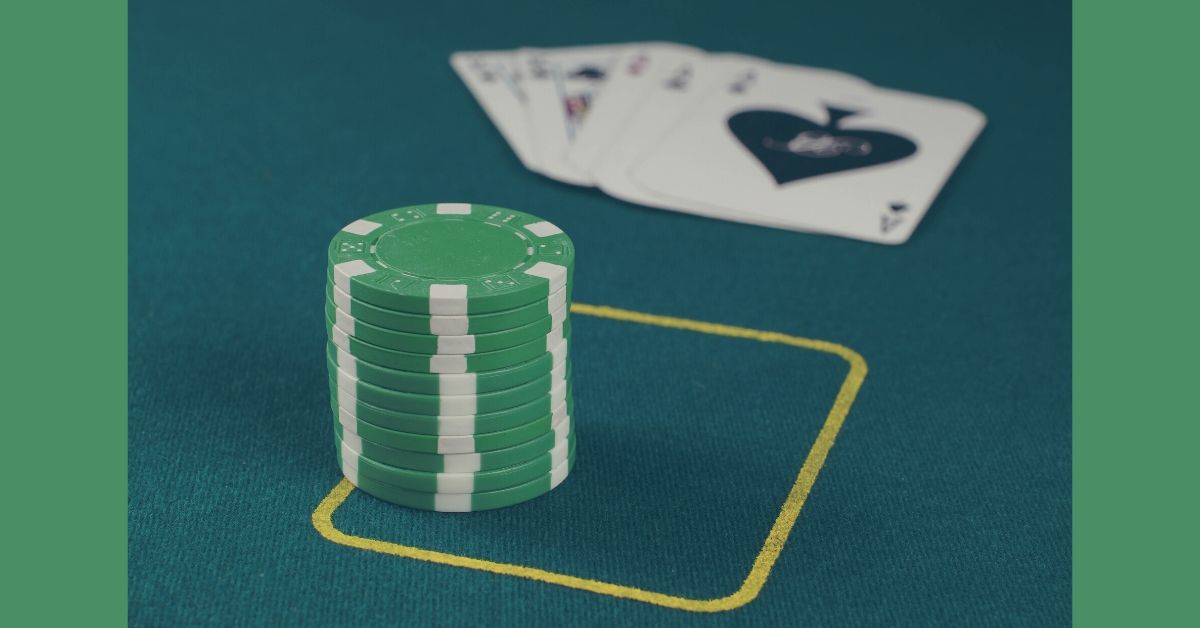Despite being a lot of fun, live games can be very profitable if you know how to adjust. These games often feature quite a few weaker players who are there just to have a good time and requires a bit different approach from the one you’d take in online poker.
Of course, it is still the same game whether you’re playing with plastic cards or their digital iterations. So, all basic principles of the game apply to live poker games, i.e., pre-flop hand selection, position, pot odds, etc.
At the same time, adapting your strategy in specific spots can significantly improve your win rate, and today, I want to talk about that.
1. Maintain your focus while playing
Playing in a live setting can be very distracting. Often, you’ll be surrounded by slots or gambling tables with plenty of uproar from the players. On top of that, you will see TVs in every corner, so focusing on the game could not be as easy as it might look at the beginning.
That being said, there is nothing wrong with blending in with the atmosphere a little bit, but you need to keep your eye on the ball.
The bulk of information in live games comes from the hands you’re not involved in. You’ll see someone pull off a huge bluff or call down to the river with a third pair. Making a mental note of these events can be invaluable to you later down the line.
If you just can’t concentrate on the action, take your headphones, and fire some music. This always seems to help at least to some extent.
2. Always observe your opponents
Although this second tip kind of ties into the first one, this relates more to the instances when you are involved in a hand. You should get into a habit of keeping a close eye on your opponents and their actions.
It doesn’t mean you should always be giving “death stares” to people at your table because it doesn’t accomplish much. Instead, try to observe other players in a way that they don’t even know you’re looking. That way, they’ll be more likely to do something that you can utilize to make a correct decision.
“As a general rule of thumb, when people pretend to be strong, they are weak and vise versa.“
Some additional things to focus on is how they’re shuffling their chips, how many times they’ve checked their hand, are they nervous, etc. These are easy to pick up and don’t require you to be the master of observation.
3. Make proper adjustments based on the tells you pick up
Learning to interpret tells in live poker is an art of its own. There isn’t a single pattern you could apply to all players you will encounter. So, your first job is to pay attention, observe your opponents, and make adjustments based on the information you have at hand.
For example, you may have noticed your opponent shuffle chips nervously before putting in a raise on the turn. Their hands were shaking, and they didn’t seem too confident. On the river, however, you find out they turned the nuts. They weren’t nervous at all – they were excited.
Next time you notice this type of behavior from the same player, you’ll have a much better idea of what it means for them in particular. Luckily to you, you don’t need to participate in the hand to gather this information, so as we already discussed, observe your opponents and only then make your adjustments.
4. Attack limpers
If there is one thing that stands out in most live games, it’s a fact people are there to play. Most people don’t like sitting around and doing nothing for hours on end. So, they’ll try to get involved with as many pots as possible while risking as little as possible because they know their hand is weak.
What I’m trying to say in a nutshell is that you’ll see a lot of limping in live games, and not only on the lowest stakes.
You don’t want to join the crowd and start limping yourself. Instead, try to attack limpers as often as possible, raising with many of your decent hands and expanding your range as your position improves.
You’ll win many pots before the flop, and in the ones you see community cards, you’ll have the initiative. Also, do not shy away from using big sizing because many do not care if you are raising 4x or 6x and they will gladly see the flop.
5. Learn to navigate multiway pots
Even if you try to punish the limpers and do your best to reduce the number of people getting involved in a hand, you’ll end up playing many hands multiway.
There is no point in getting mad about it. It’s just how live poker works, and you can’t avoid it. What you can do, though, is learn to navigate multiway pots.
These scenarios will often put you to the test because it will be hard to put your opponents on the correct ranges. When the third and fourth limper decides to call your 7x isolation, they really could have anything because there are no actual hands they should play this way.
When these things happen, you should fall back to your instinct and your experience. Passive players who limp a lot preflop don’t tend to bluff a lot postflop. So, if they suddenly start betting and raising, they’re likely to have it, regardless of the board texture. Maybe they just love playing 62s for whatever reason.
“The most important adjustment you can make in multiway pots is to reduce your betting frequency.”
You one pair hand has much less value against four opponents than against one, and your bluffs are less likely to go through, so you should not come firing without a good reason.
6. Play as many pots as possible against weaker players
“If you can’t spot the sucker in the first half-hour at the table, then you are the sucker.”
This line from the cult movie Rounders may be a bit of cliché, but it is true for most live games. It may be a bit harsh to call weak players suckers but, at the end of the day, their money is up for the taking, and you should be the one doing the taking.
You should have no problems identifying weak players at your table within the first couple of orbits. They’ll be the ones pilling in chips in almost every pot, constantly limping and playing almost every hand.
You want to play as many pots as possible against recreational players.
So, when you see them entering the pot, you should do your best to isolate and get heads-up. Do it as much as you can as long as other players at the table let you do it with impunity. In these spots 3-betting, even medium-strength hands can yield huge dividends in the future.
If you notice they start to pick up on what you’re doing and playback, you can reassess your strategy.
7. Try to keep your emotions in check
This final tip has nothing to do with poker strategy as such, but it is still an important one. In live poker, emotions can run high, and it’s easy to get annoyed or tilted. Someone could even intentionally try to get you on tilt with their comments, remarks, or general behavior.
Don’t fall for it.
Do your best to stay calm and composed. If you need to take a break, walk away from the table for a little while and come back with a clear head.
Your best “revenge” against someone trying to get under your skin is by beating them in a huge pot – and you’ll have much better odds of doing that when you’re thinking clearly.
================================================================================
What we’re all about at
Ace Poker Solutions
We offer the highest EV poker software, and training tools available on the net. These are recommended and used by today’s top poker players from the world. We’ve been doing this since 2009 with the emphasis on offering unique and creative poker software that will help any level of poker player be a more thoughtful and successful player at the table. We’d invite you to check these titles out:
PokerZion – Get Started with PokerZion’s Proven Poker Training for $7! From over 12+ years of playing poker, combined with techniques and tactics used to win over $500k+ in cash games, this the most comprehensive structured learning course on no-limit holdem. And it’s only7$! All lessons include a combination of poker training videos, written and audio modules, quizzes and articles. LEARN MORE.
 Leak Buster Software – Leak Buster is a poker software that interfaces with your Holdem Manager or PokerTracker database, and extracts key statistics about your play in order to find your largest poker leaks. Its unique scoring algorithm weighs the impact of your leak against average win-rates. And it suggests ways to correct those leaks through the use of videos (over 50) and written modules. LEARN MORE.
Leak Buster Software – Leak Buster is a poker software that interfaces with your Holdem Manager or PokerTracker database, and extracts key statistics about your play in order to find your largest poker leaks. Its unique scoring algorithm weighs the impact of your leak against average win-rates. And it suggests ways to correct those leaks through the use of videos (over 50) and written modules. LEARN MORE.
 DriveHUD – DriveHUD is a poker database and HUD for your online poker play. It overlays a HUD on your online poker tables, and display vital stats about each opponent on your table. It tracks and records all of the hands that you play online. This allows you to review, re-play, filter, graph and analyze all of the hands you’ve played. So you can improve your poker game. LEARN MORE.
DriveHUD – DriveHUD is a poker database and HUD for your online poker play. It overlays a HUD on your online poker tables, and display vital stats about each opponent on your table. It tracks and records all of the hands that you play online. This allows you to review, re-play, filter, graph and analyze all of the hands you’ve played. So you can improve your poker game. LEARN MORE.
Ace Poker Drills – Ace Poker Drills is a poker training software that gives you a “flash card” style training for Odds and Outs, Equity, and Pre-Flop play. The Pre-Flop trainer will help you to easily recognize which hands to play in different positions. Odds and Outs trainer will get you to quickly calculate your odds and outs in various situations. Equity Trainer will quiz you on equity calculations for different hands. Then you can know your equity in any given scenario. LEARN MORE.





![[Limited time] Grab Your Black Friday Deals](https://acepokersolutions.com/wp-content/uploads/2023/11/aps-black-friday-2023-500x383.png)
I would add one more point that personally helped me a lot. For some time I have been keeping a sort of diary in which I write my biggest mistakes and biggest succes. After some time, a large database gathered, which I review from time to time. In my opinion, this is a very effective learning method.
Thanks for sharing your thoughts Greg!
No problem 🙂 ty for great article!